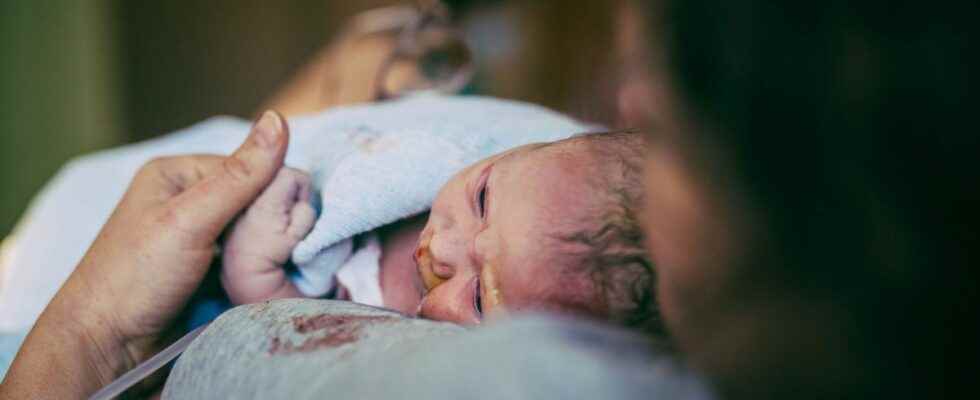Published on
Updated
Reading 2 mins.
In Amiens, a 21-year-old student – who did not know she was pregnant – gave birth in the middle of a school canteen. How to explain and detect in time such a denial of pregnancy? The answers of Dr. Lucie Joly, psychiatrist.
The story seems unlikely and yet: while she was simply having lunch with her classmates in the canteen of her school, a 21-year-old young woman complained of severe pain and gave birth a few minutes later.
Intense lower abdominal pain
It was during the lunch break, in the canteen of the Cité scolaire, that the BTS student was taken by “violent pain”.
Quickly, Vincent Picot, the manager of the catering service, was called to help him.
“I was quietly typing a report when a supervisor came to get me, telling me that a student was about to give birth.“, relates the manager of the catering service teams. “At first I didn’t believe it“, he explains to the Courrier Picard.
And for good reason : “Impossible to suspect that she could be pregnant, she had a flat stomach“.
The manager, who has first aid training, nevertheless took the situation very seriously. After calling the fire brigade and having part of the canteen evacuated, he lays the young woman on the ground, her head on her bag, and isolates her from the other students by using the canteen’s screens.
“She told me she felt something growing. I told him to put his feet on my knees and push hard. We could already see the child’s head“, he says.
A few minutes later, a perfectly healthy baby girl of about 2.5 kg was born.
Vincent Piquot then provides first aid to the infant.
“I was relieved when I realized that mom and child were fine.”
It was therefore indeed a denial of pregnancy – a first for the manager of the catering service.
Who is affected by pregnancy denial and what are its causes?
This phenomenon is still very mysterious.
Dr. Lucie Joly, declares that “there is not really a particular profile, even if we note that women in a couple and with a precarious psychosocial situation are a little more affected“, before adding “that it is a rather mysterious phenomenon, which we still know too little about.”
Characterized by an absence of pregnancy symptoms (breast tenderness, nausea, growing belly, etc.), denial can be partial – it is discovered before childbirth – or total – awareness is made at the time of childbirth. We also speak of denial of pregnancy from the fifteenth week of amenorrhea.
“False periods can even occur“, specifies Dr. Joly.
The entourage of this mother who “is unaware” is also concerned: the fathers of the babies, who sometimes refuse to know, can thus miss out completely.
Need for significant support after birth
Regarding the causes of denial, “they are multiple, but this phenomenon is explained by an alteration of the communication between the body and the brain. External factors of course play an important role, such as those that induce emotional shock (separation)“.
Denial is therefore a “defense mechanism” of the organism, which makes it possible to protect the future mother from a traumatic perception.
“Once the lifting of denial has been carried out, taking care of the patient is very important. As the maternity process could not take place during the pregnancy, the mother needs more than ever to be supported and accompanied”.
